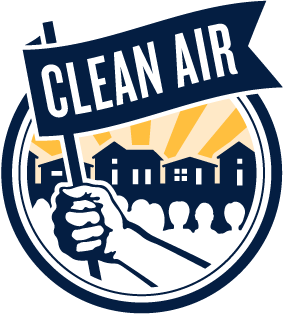Tonawanda Coke to Appear in US District Court on Tuesday
El martes, September 4th at 10:30al Se ordena a Tonawanda Coke y al director ejecutivo Paul Saffrin que comparezcan nuevamente en el Tribunal de Distrito de los EE. UU. Frente al Honorable Juez William Skretny con respecto a posibles violaciones de la libertad condicional de la empresa de su 2013 criminal sentence.
Los funcionarios federales de libertad condicional sostienen que las emisiones de la empresa son una amenaza para la salud humana y el medio ambiente y que la empresa violó su compromiso de no cometer ningún otro delito después de su sentencia en 2013. El Departamento de Conservación Ambiental del Estado de Nueva York ha emitido 176 violations to the facility since January.
Tonawanda Coke’s collapse of their heat waste tunnel earlier this year does not bear well for the future of the facility to remain in operation. In addition to the equipment failure, the Department of Environmental Conservation issued a Cease and Desist of the company’s coking operations this July. A pesar del orden, Tonawanda Coke has continued to operate.
Clean Air calls on the courts, the Department of Environmental Conservation and the US Environmental Protection Agency to ensure that Tonawanda Coke is accountable to workers and the community if the company is allowed to remain in operation, or if CEO Paul Saffrin decides to shut it down.
Clean Air’s requests include:
- The US District Court, the Environmental Protection Agency and the New York Department of Environmental Conservation require the company to submit and make public an emergency shut down plan, which includes how the company will contain fugitive air emissions in case of further collapse.
- Clean Air no cree que dejar a la gente sin trabajo sea la respuesta. Si el director ejecutivo Paul Saffrin decide quitarles la capacidad a sus trabajadores de mantener a sus familias, instead of investing the protections to run a clean sustainable business, we request that a portion of fines are used to help workers gain skills for gainful employment elsewhere. In addition, Clean Air is calling on Judge Skrenty to require Tonawanda Coke to fund continued health monitoring of all employees, including temporary workers, to guard against any potential occupational health issues.
- Clean Air is calling on Judge Skrently and the New York State Department of Conservation to require Tonawanda Coke and CEO Paul Saffrin commit and set aside funding for future site remediation in case of closure. Tonawanda Coke sits on river front property, in a neighborhood with families and children. Paul Saffrin should commit the appropriate funds to ensure site remediation to redevelop the site in a way that is consistent with the Plan de desarrollo económico de Tonawanda Tomorrow.
Clean Air members who live in neighborhoods adjacent to the company’s property have experienced the egregious behavior of Tonawanda Coke for over a decade. Resident organizing resulted in a 2009 raid of the facility by 50 federal and state agents for ongoing environmental health violations. En 2013, un jurado federal encontró la empresa y Mark Kamholz, environmental manager, guilty of 14 criminal charges, including violations of the federal Clean Air Act as well as violations of the Resource Conservation and Recovery Act, in regard to the improper disposal of benzene, a known human carcinogen.
Tonawanda Coke has also had a long history of endangering workers at their plant, en al menos un caso que resulta en la muerte. En 2014, U.S. La Administración de Salud y Seguridad Ocupacional del Departamento de Trabajo citó a la planta y a Kirchner LLC, which provides Tonawanda Coke temporary workers, with 17 serious violations. The violations included putting employees at risk of falls, amputaciones y lesiones por aplastamiento, according to the agency’s press release. OSHA define una infracción grave como “cuando la muerte o un daño físico grave podrían resultar de peligros que el empleador sabía o debería haber sabido. Dos años después de la OSHA citó a la empresa con estas violaciónes, a 60-year-old employee, Richard Wade, died after he was pulled into the rotating shaft of a coal elevator. In a statement to the Buffalo News, OSHA stated the death could have been prevented if Tonawanda Coke followed federal standards.
Tonawanda Coke has been able to operate in this way because we exist in a economic system that allowed them to. We elect politicians that have enacted laws that have allowed them to. Participamos de una cultura que les ha permitido. Esta empresa no es un actor aislado, and until we shift the types of businesses we have in our economy, and ensure that people are put first over shareholders and CEO’s wealth, the Tonawanda Coke’s of the world will continue to exist, and working class people and people of color will continue to bear the burden, and have to clean up the mess.
Alentamos a nuestros miembros a asistir a esta audiencia de historia.. Para obtener más información, comuníquese con Brian o Rebecca en 716-852-3813.
